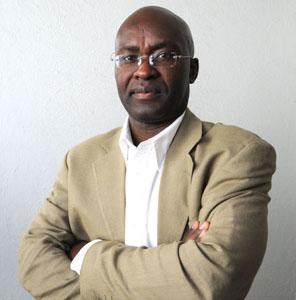
“It is possible to read Fanon as an advocate of Ubuntu,” Professor Achille Mbembe, philosopher, political scientist and public intellectual told the audience at last week’s Second Annual Rhodes University Thinking Africa Project Public Lecture, entitled “Frantz Fanon on the Subject of Emancipation”.
According to Prof Mbembe, Fanon’s work draws on understandings of Ubuntu in that self-creation is constituted as a realisation of human hood. “For Fanon, a negro is not born black; we are all born into the human condition and need to be recognised by the other. It is in confrontation with the other that one finds humanity,” Prof Mbembe said.
He draweda link to the understanding of Ubuntu, that humanity is affirmed in acknowledging the humanity of others. “Black is a name given to me by the other as a result of misrecognising my humanity,” he said, adding that “it is in the confrontation with the other that I find my humanity, according to Fanon.”
Fanon, a Martinique-born French-Algerian psychiatrist, philosopher, revolutionary and writer whose work is influential in the fields of post-colonial studies, critical theory and Marxism, is known as a radical existential humanist thinker on the issue of decolonisation and the psychopathology of colonisation.
Fanon supported the Algerian struggle for independence and became a member of the Algerian National Liberation Front. His life and works have incited and inspired anti-colonial liberation movements for more than four decades.
Fanon’s work has been a central concern of the Thinking Africa Project, hosted by the Department of Political and International Studies at Rhodes University, since its inception in 2011.
Prof Mbembe’s work is widely taught and discussed at Rhodes University, as is Fanon’s. This year’s colloquium, retains a central focus on Ubuntu under the theme, “Ubuntu: Curating the Archive”.
According to Prof Mbembe, Fanon’s life and text should be taken as a single event in that they both constitute Fanon’s signature. “Both his life and his text acquire meaning in in relation to the urgency in which they were lived and articulated, as races against time, war and death.” Fanon’s life can be summarised as a “passage through the tempest,” during which he left behind “dazzling traces” in his work.
Prof Mbembe provided an overview of Fanon’s work, including Black Skin, White Mask (1952) in which Fanon tried to unearth the visceral devices of racism and its repetitive qualities. In his work Fanon focuses specifically on the black body.
He suggested that the ‘modern question of blackness’ originated from the Caribbean and Americas, “where human beings of African origins are turned black in the modern era” and embody a normalised marker of servitude and objection. “Black is the condition of possibility of the modern world. Blackness is not simply a signifier, but rather is the name of unbridgeable differences,” Prof Mbembe said, highlighting that Fanon’s work was an attempt at understanding these phenomena in an effort to bring an end to human suffering.
Prof Mbembe was born in Cameroon in 1957. He obtained his PhD in History at the University of Sorbonne in Paris, France, in 1989. He subsequently obtained a D.E.A. in Political Science at the Institut d’Etudes Politiques in the same city.
He has held appointments at Columbia University in New York, Brookings Institution in Washington, DC, University of Pennsylvania, University of California, Berkeley, Yale University, Duke University and Council for the Development of Social Science Research in Africa (CODESRIA) in Dakar, Senegal.
He is currently a member of the staff at the Wits Institute for Social and Economic Research (WISER) at the University of the Witwatersrand in Johannesburg, South Africa, and a contributing editor of the scholarly journal Public Culture. Prof Mbembe’s main research topics are African history and politics and social science.
Story by Sarah-Jane Bradfield
